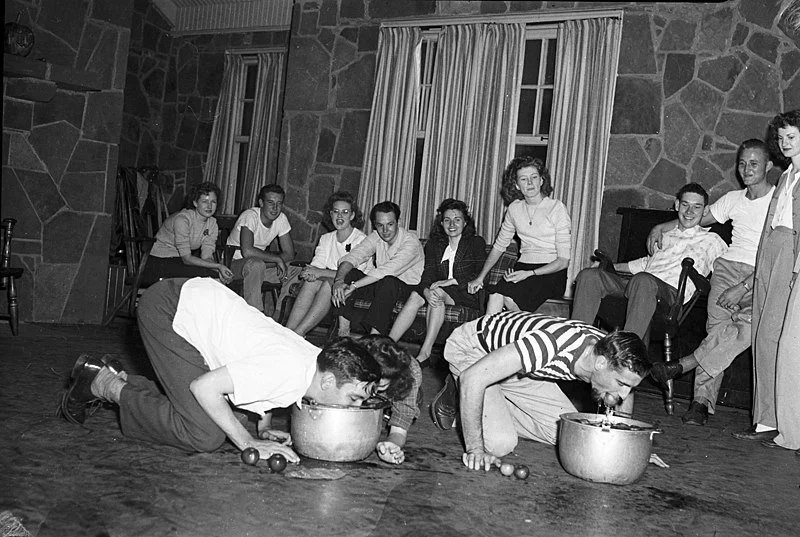In 1972, the fraternity brothers of Lambda Chi at Oklahoma State University had a little problem. Like most frat bros, they liked to get drunk. I'm not talking about a little drunk. I'm talking about the kind of drunk where throwing your buddy into a wall seems like polite conversation. I'm talking about the kind of drunk where running a lawnmower up and down the hallway seems like a good idea. There was just one little problem. At the time Oklahoma had a strange law where men had to be 21 to buy beer, but women only had to be 18. For a large number of the Lambda Chi bros, if they wanted to get drunk they had to be nice as hell to their girlfriends, sisters, or any other random member of the female gender that might be willing to use their state given benefit to bless them with the most delicious of suds. Oklahoma's theory behind the law was that women, being as they claimed the weaker and gentler of the sexes, were much less likely to be involved in wild booze fueled shenanigans. Well, it goes without saying that the Lambda Chi bros thought this was total bullshit, and by some miracle a few even had the gumption to try and do something about it.
After being challenged by an old fogey professor to either get off their asses or quit their bitching, a few of the bros decided to challenge the law in court. To strengthen their case, they convinced the owner of a local beer store, called the Honk'n'Holler, to join the lawsuit. By which I mean they just kind of lied to the owner about what they were truly up to. The fraternity then raised enough money to hire a less than skilled good old boy lawyer, who filed a lawsuit with the local district court claiming that the state law discriminated against men between the ages of 18 and 21. Things went about as well as you can expect. The case was dismissed.
Now that might have been the end of it, but it’s at this point in the story that Ruth Bader Ginsberg got involved. Yes, that Ginsberg, the one who would later become a Supreme Court Justice. At the time Ginsberg was a famous feminist and lawyer for the ACLU who specialized in gender equality. Hearing of the case, she offered her services pro bono. Now one might ask why the hell a famed feminist lawyer gave a damn about some bros getting their hands on some brewskis? Well, it’s because Ginsberg is a freaking legal genius. At the time, though women had been given the vote by the 19th Amendment in 1920, there was no federal law guaranteeing them equal status, leading to all sorts of screwed up gender biased shenanigans. Most of the rip-roaring feminists of the time were pushing for what was called the Equal Rights Amendment, which would have put gender equality in the constitution. Thousands of rallies full of chanting and impassioned speeches were being held across the country in support. However, the ratification of the amendment by the states had stalled out short of the three quarters needed.
Enter Ginsberg. With the Equal Rights Amendment floundering she decided to make a more surgical strike. To her way of thinking a new amendment wasn't needed given that the constitution already had the 14th Amendment, which guaranteed equal status under the law, most notably in relation to race. All Ginsberg had to do was convince a bunch of frumpy old white men that gender ought to be included as well. This was where she got clever. Ginsberg recognized two important things that many of her feminist contemporaries did not. First, to create change you have to deal with the world as it is, rather than how you would like it to be. Second, if you want a group of old frumpy white men to give a shit about something, you have to give them something they will give a shit about. The right of Oklahoma frat boys to buy beer fit the bill perfectly.
Under Ginsberg's leadership the case, called Craig v Boren, was appealed all the way to the U.S. Supreme Court, which in 1976 sided with the frat bros in declaring the Oklahoma law to be unconstitutional. At long last 18 year old men in Oklahoma could buy beer, though only until 1983 when the drinking age was raised to 21 for everyone. However, more importantly, for the first time the Supreme Court recognized that the 14th Amendment applied to gender, paving the way for numerous future cases, ones actually involving women's equality, which in turn have led to the much more equal society we live in today. Not bad for a clever lawyer and a bunch of drunken bros.
Image: https://commons.wikimedia.org/wiki/File:North_Texas_Agricultural_College_party_with_students_bobbing_for_apples_(10008564).jpg
